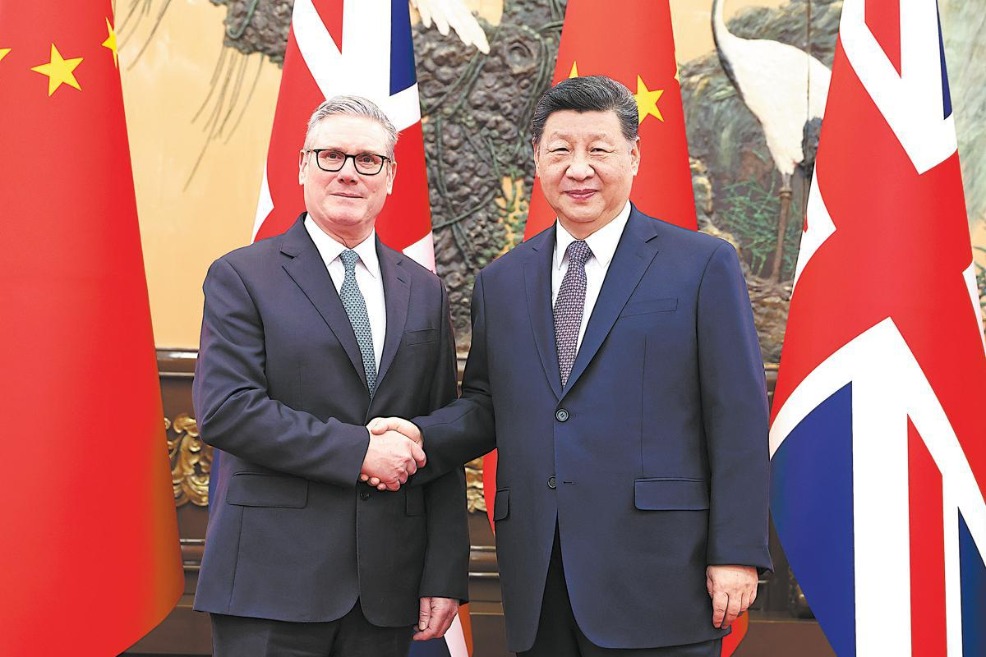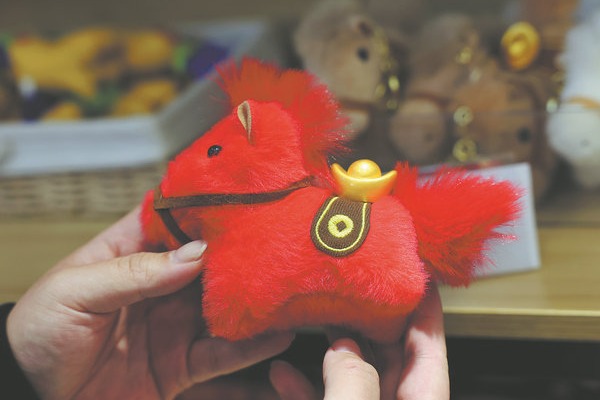Young generations seek self-healing
Amid Covid-19 and self-isolation, people look within to lower anxiety, ease depression

On a recent Sunday afternoon, 15 young people laid cozily on colorful rugs and throw pillows arranged in a circle. Their eyes were closed, some with their legs stretched forward and others curled up, looking as if they were asleep.
Kong Yi sat cross-legged before them, using a special mallet to gently hit metal bowls in front of her, arousing a sound that reverberated long inside the quiet room in downtown Shenzhen, a fast-paced southern city in Guangdong province.
Following Kong's instructions, they participated in a two-hour sound healing and meditation session. Listening to the slowly fading sounds of ancient musical instruments such as singing bowls and gongs, participants reached a deeper center and a semi-conscious state.
After, they were guided into imagining that they were talking to a wise man dressed in white, during which they could ask questions and get answers from the wise man in half an hour. In the final section, they were encouraged to share their inner conversations with other participants.
"In that session, many people asked the meaning of life at the end but everyone gave different answers from the wise man — actually themselves," said Kong, who runs a studio offering healing courses incorporated with art forms like painting, music and dance.
Such spiritual, meditative experiences that can lower stress and anxiety and ease depression have become the latest option for the country's stressed-out younger generation seeking relaxation and inward exploration.
Among Kong's client groups are those who are interested in art and psychological healing — educated young white-collar workers who need to relax and full-time mothers who are eager to learn and talk.
Kong said: "The sleep-like phase, though only lasting half an hour, is very decompressing and relaxing, and many people wake up feeling like they've slept for a long time."
Through meditation and expression, the potential for self-healing in each individual has been brought out, which is a powerful process, she said. "They get rid of some thoughts that are not beneficial to life and feel relaxed at the end," she said.
The 37-year-old former university staff turned to studying art healing in recent years after being inspired on her first try in 2016. She observed that young Chinese who are open-minded are now willing to try art healing, which had little market a few years ago.
Kong attributed part of the reason to the frequent quarantine and social distancing practiced in the past three years for COVID-19 epidemic prevention which has changed people's way of dealing with stress.
"People used to go to the cinema, KTV, shop, eat and drink but now they tend to spend more time with themselves, which is a kind of ability that needs training, so sound healing and meditation that offer inner exploration is now welcomed by the public," she said.
Art therapy remains a niche in China, but Kong believes the market is expanding. In the post-pandemic era, people have growing stress relief and spiritual life needs.
Stress-relieving hobbies
According to a report released by Bilibili, a video-sharing platform popular with young Chinese, in October, younger generations are increasingly concerned about their mental health. The view number of videos related to such topics in the past year saw a huge increase of 83 percent year-on-year.
Among users who seek answers or offer suggestions on psychological issues through the platform, those aged 24 or below accounted for 76 percent. Emotional words of high frequency searched on the platform included anxiety, depression and stress, the report showed.
Young people's need to find entertainment away from work has led to the emergence of a variety of novelty experiences aimed toward relaxation. Their willingness to pay for these trendy hobbies has prompted stress-relieving businesses.
A list of ten emerging popular stress-reducing activities this year issued by Meituan, an on-demand service platform, included tufting, murder mystery games, massage and pet cats and dogs.
The handicraft experience, tufting, a technology of turning wool into blankets used in industrial production, has been a must-try in handmade workshops in China this year where customers can experience making carpets or handbags themselves.
Customers choose a picture they like and project its outline on a piece of cloth, hold up an electric gun and fill the pattern with colorful wool. Tufting workshops were popping up in major cities across the country in the past year as the activity is easy to get started and full of fun.
Jiang Junqi, 28, an art graduate and a freelance illustrator, brought the tufting activity into her art studio that teaches painting in downtown Hangzhou, Zhejiang province, earlier this year as she noticed the soaring demand for the craft.
On weekends, the tufting workshop attracts young handicraft lovers. They spend the day carefully weaving wool, each holding a tufting gun in their hands, with chatter and laughter filling the room.
Teenage students and office workers under 30 are typical tufting lovers, Jiang said.
"People around me are all willing to give it a try and find it interesting, especially females who cannot say no to furry things," Jiang said.
Young people like this activity which combines art and practicality, and can make a gift for others or make a small rug to cover the electric meter box at home, she said, adding that one repeat customer made a dozen rugs.
"It can enrich people's hearts. Many don't know that they can do art and feel that art is difficult. In fact, it is not, and art is all around us," Jiang added.
Meanwhile, stressed young people long for a place they can have different experiences away from work, Jiang said.
"Some said they are like screws that keep working in the office but when they do tufting, they can forget about their work and just focus on making crafts," she said.
Tufting has turned a profit for her studio in the past year but Jiang found that the enthusiasm for it is cooling down as many stores have closed, prompting her to explore a new business model.
Recently she used tufting skills and colorful materials to make fruits, vegetables, meat and fish, and other lovely designs that are closely related to daily life, which sold well at markets or for displays, so she decided to open an online store selling handicrafts. "I believe the furry products with bright colors can make people happy and arouse their enthusiasm for life," she said.
Apart from the art healing industry, niche sports like archery, boxing and surfskating are riding a wave of popularity, according to the Meituan stress-relief list.
Boxing two or three times a week at the gym has become a habit for Deng Yu, 30, a lawyer in Shanghai, in the past half year in the frantic days leading up to deadlines.
"Even though I'm under a lot of pressure, I have to restrain myself and be patient while communicating with clients," he said. "In boxing, I am highly focused, not thinking of my troubles. I feel in control when making aggressive moves and sometimes I yell out when I throw a punch.
"I do benefit from the sport, it toughens me up. But after a short rest, I know I still have to face difficulties in life and get them solved. After all, action is the best weapon against anxiety."




Today's Top News
- Building shared skills for shared growth with BRI partners
- Xi chairs CPC leadership meeting to review report on work of state institutions, secretariat of Party Central Committee
- China's transport sector sees growth in 2025
- Politicizing business cooperation undermines shared interests
- High-profile visits signal pivot by EU
- Nation gears up for Spring Festival rush






























